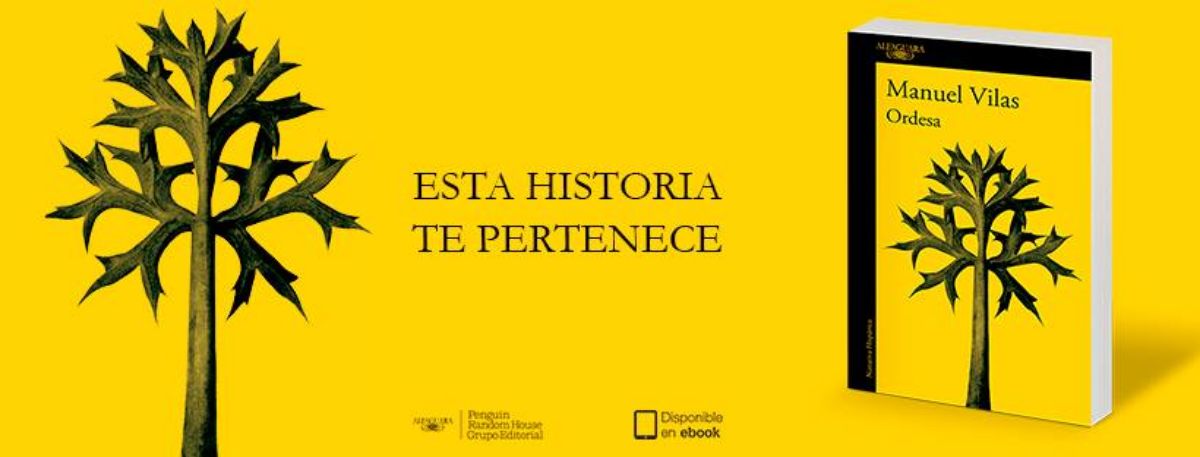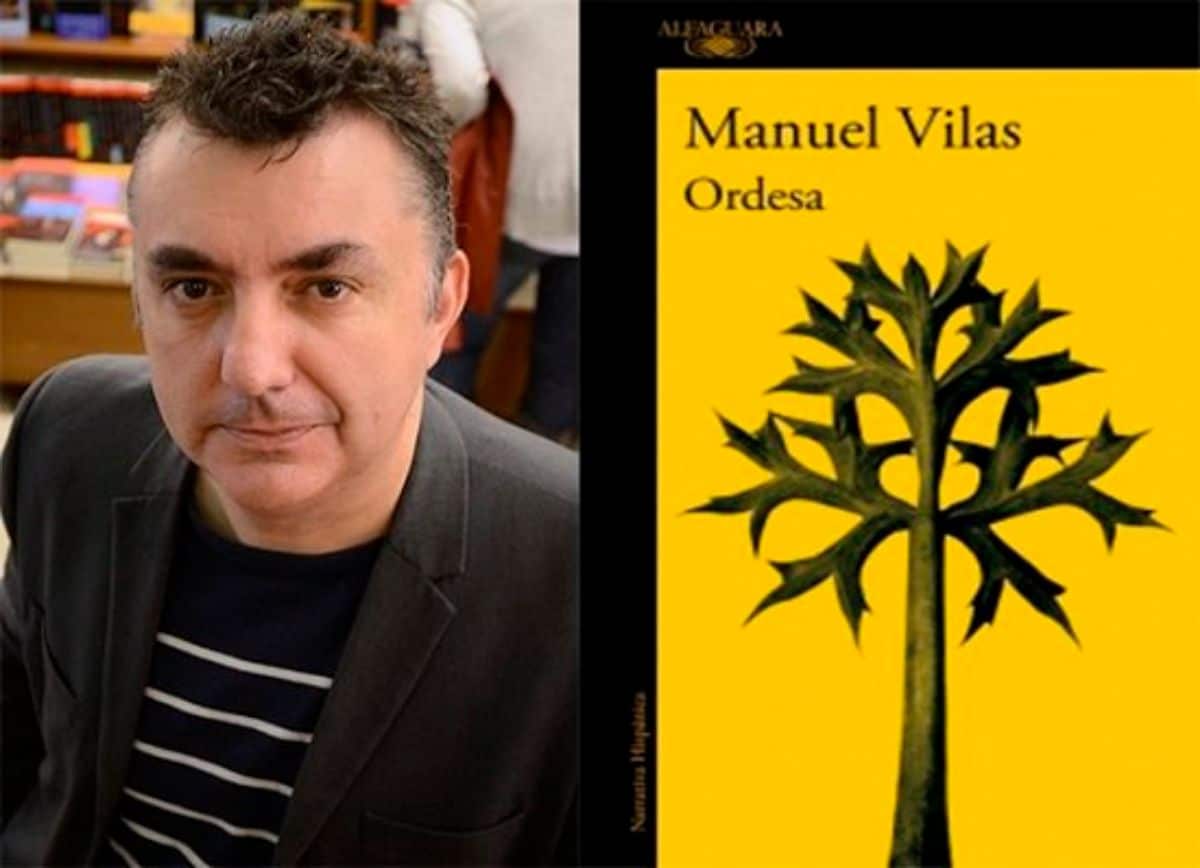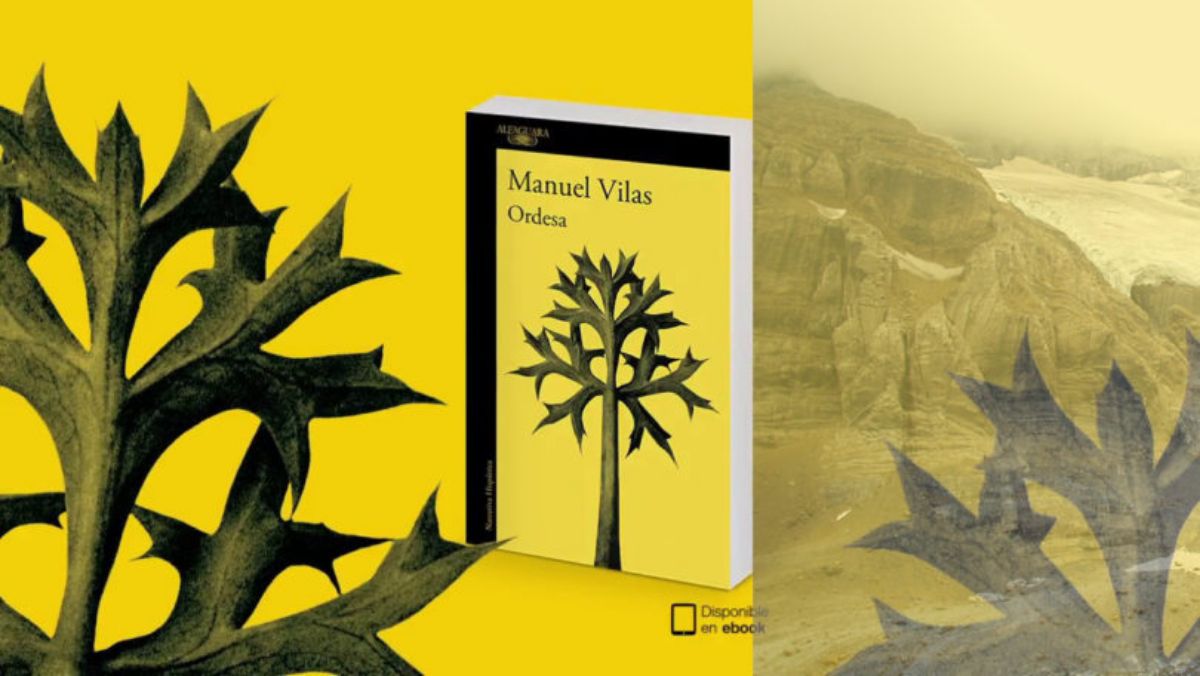
One of the books that has given the most to talk about is Ordesa by Manuel Vilas. It is a work in which many see part of his life reflected, or it may even seem like an autobiography of the author himself. But Ordesa is much more.
Next, we want to talk to you about the book, its author, and everything you must take into account to start reading it as soon as possible. Do you want to know what Ordesa de Manuel Vilas is about?
Who is Manuel Vilas

Source: RTVE
Manuel Vilas is a writer who was born in Huesca in 1962. He studied Hispanic Philology and, for twenty years, he was working as a secondary school teacher. However, the call of writing caused him to quit his job in favor of literature. He began to develop poetry, as well as essays and novels. In fact, Ordesa is not his first great success, before it was preceded by many others such as Aire Nuestro, in 2009, or Lou Red era español, in 2016.
It should also be remembered that he was a finalist for the Planeta Award in 2019 with his work "Alegría sobre las relationships between parents and children".
As a writer, He has collaborated in some of the most well-known media in Spain. We talk about El Mundo or El Heraldo de Aragón (both from the Vocento group), La Vanguardia, El País, ABC… Even on the radio they have found a niche and have also collaborated with Cadena Ser.
Ordesa's book

According to the author himself, Ordesa began to take shape after the death of his mother, which occurred in May 2014. For Vilas it was a bad year, since he also divorced at that time.
The book It went on sale in 2018 by the Alfaguara publishing house and managed to be a success. It obtained 14 editions, all of them in less than a year, which made it sell more than one hundred thousand copies. It was the book of the year (2018) for various media such as El País, La Vanguardia, El Mundo, El Correo ... And it has gone abroad, since many other countries noticed the work (United States, United Kingdom, Italy , Portugal…). Several translations of the book came out a year later, such as the Italian or the Portuguese.
And what is Ordesa about?
If we told you a quick and concrete answer, We would tell you that Ordesa de Manuel Vila deals with the relationship that exists between parents and children.
It is the novel with the most personal touches of the author himself and today it is a reference book for both writers and the general reading public.
Muchos other authors have given opinions about Ordesa. We can highlight some of the words of some of the best known such as:
"One of the most humane, deepest, most comforting books I have read in a long time."
Lawrence Silva
«It is the album, the archive, the memory without lies or consolation of a life, of a time, of a family, of a social class condemned to much effort and little fruit. […] It takes a lot of precision to count these things, it takes acid, the sharp knife, the exact pin that punctures the globe of vanity. What remains at the end is the clean emotion of the truth and the grief of all that was lost. "
Antonio Munoz Molina
Para muchos, Ordesa is like a posthumous letter that Manuel Vila has written to his parents. Through short chapters, which are intertwined with each other, we learn the story of a helpless and uprooted character who tries to survive as best he can, who realizes some things that seem "small and insignificant" and are actually more important. than we believe.
It is written with a simple language but at the same time difficult, and there are certain passages that can be difficult to understand, or to know exactly what the author himself is referring to. He is experienced, especially in poetry, but many times he sins of using these resources for a narrative, which makes the reader a bit lost.
As for the story, there is no doubt that it speaks from the heart, since it exposes what he has lived, although not in the first person, but with a very similar character who not only tells his past, but also his present so that the reader has an approach to his life. Taking into account that those of telling one's life is very fashionable, it is a book that you may like if you like that literary genre.
What is the synopsis of Ordesa de Manuel Vila?
The synopsis of Ordesa de Manuel Vila is something original and certainly very different from what you would expect from a novel. And it is written in the third person and does not reveal the true message that the book carries, but is more ambiguous. Maybe that's why it attracts attention.
Written at times from tears, and always from emotion, this book is the intimate chronicle of Spain in recent decades, but also a narrative about everything that reminds us that we are vulnerable beings, about the need to get up and move on. when nothing seems to make it possible, when almost all the ties that united us to others have disappeared or have been broken. And we survive.
Some extracts from Ordesa de Manuel Vila

Through Random House, in his book resource dossier, we can have a Ordesa's first approach with some extracts from the book. We leave them below so that you can decide whether to read it.
And I started writing this book. I thought that the state of my soul was the vague memory of something that happened in a place in northern Spain called Ordesa, a place full of mountains, and it was a yellow memory, the yellow color invaded the name of Ordesa, and after Ordesa the figure of my father was drawn in a summer of 1969. »
«When life lets you see the marriage of terror with joy, you are ready for fulfillment. Terror is seeing the fuselage of the world. "
"My mother was a chaotic storyteller. I am too. From my mother I inherited narrative chaos. I did not inherit it from any literary tradition, classical or avant-garde. "
“Every alcoholic comes to the moment when he must choose between continuing to drink or continuing to live. A kind of spelling choice: either you keep the bes or the uves. […] Whoever has drunk a lot knows that alcohol is a tool that breaks the lock of the world. "
«I write because the priests taught me to write. Seven hundred million cures. That is the great irony of the life of the poor in Spain: I owe more to priests than to the Spanish Socialist Workers Party. The irony of Spain is always a work of art. "
«I don't like what Spain did to my parents, nor what it is doing to me. Against the alienation of my parents I can no longer do anything, it is irredeemable. I can only make it not come true for me, but it has almost come to pass. »